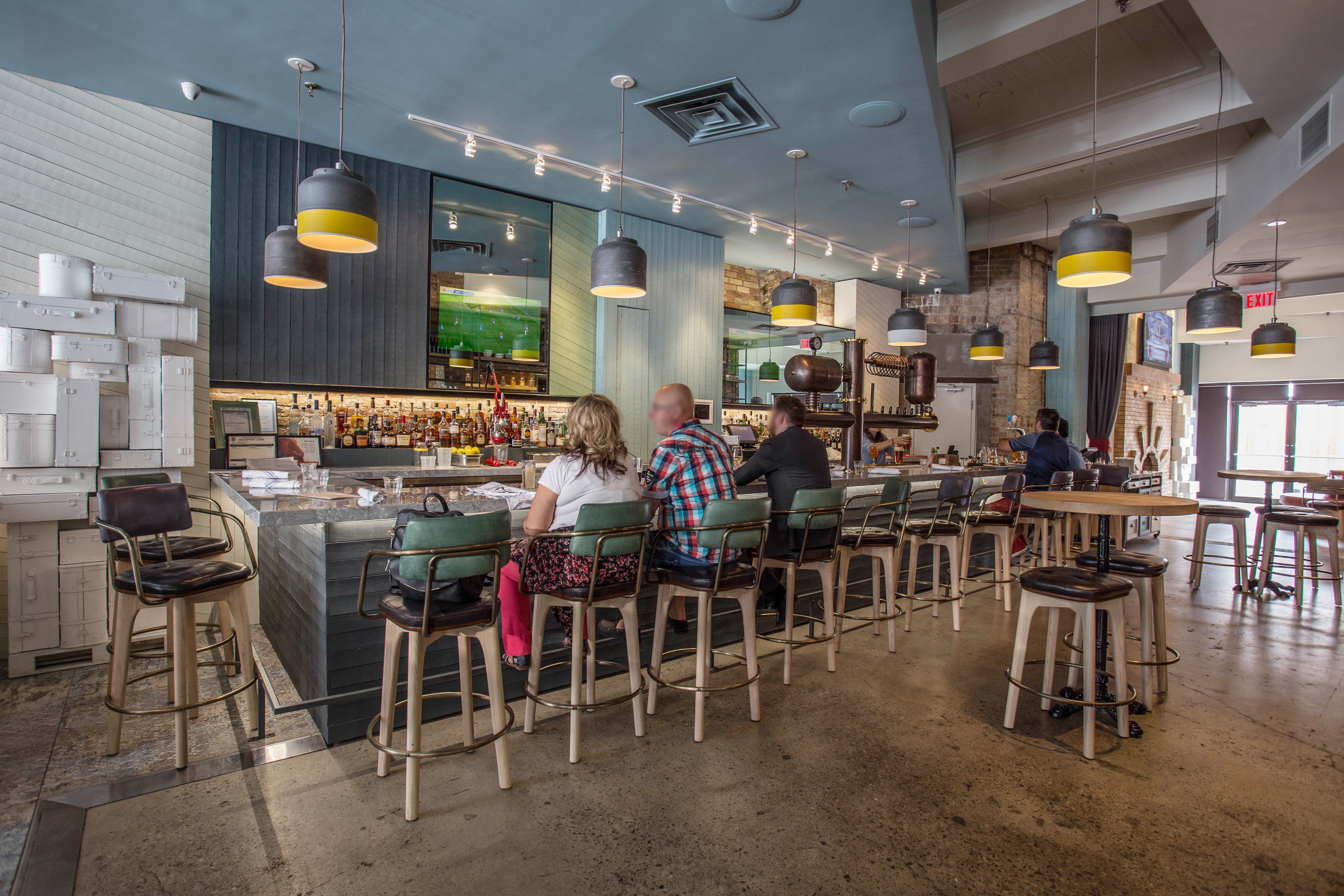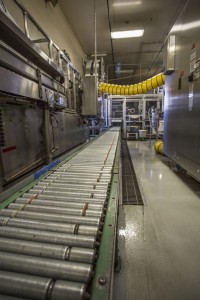
Acceptance in beer is a process that many have to go through, though not all want to. This acceptance could lie in the letting go of a beer, or a style, that your favourite brewery no longer wants to brew. It could be based in their decision to move away from bottling to canning, or vice versa.
Or it could be the acceptance that your favourite brewery takes the considered, major decision to accept an acquisition proposal from a company in big beer. In 2005, Creemore Springs did just that and despite it acting as a catalyst for the good of the brewery, its beers,and its ability to expand. it still leaves a sour taste in the mouth of some drinkers to this day.
“When we were acquired, people had a fear of what it would change. How it would change us. Let’s be honest here, we all did. It was a fear of the unknown and how the future would unfold. But true to their word, they kept their hands off of us, explains Karen Gaudino, director of marketing at Creemore Springs.
She recalls the period during the acquisition by Molson Coors, a relationship that is going strong to this day.
“We were bought to help us grow, not to change us. We still get comments and you know what? They are to be expected and we can’t change that. But what we can change, or at least try to, is people’s perceptions of us,” she adds. “We tell these people that ownership does not define who we are. We are still the same people, making great beer and that’s not changing. When it comes to our relationship with our customers, especially. We have grown and we can’t and won’t hide from that. That’s not who we are. But we haven’t changed.”
 Gaudino and her colleagues, for today at least, brewmaster Gord Fuller and Geoff Davies, head of operations, empathise with the perception bestowed on them by fans of Creemore Springs beer.
Gaudino and her colleagues, for today at least, brewmaster Gord Fuller and Geoff Davies, head of operations, empathise with the perception bestowed on them by fans of Creemore Springs beer.
And that is not something exclusive to Canada or North America, it’s a feeling shared by beer fans across the globe. Acquisitions are taking place worldwide across the globe, and that isn’t something that will simple stop overnight. And for as long as these deals continue, so will the battles between breweries and their adoring public.
“People here are aware of the Labatt’s effect on Kokanee beer to London Ontario. It didn’t take long for that beer to be no longer brewed with mountain spring water which was what made that beer. And as a result, that brand was ruined for so many people. They felt lied to, they felt betrayed. The story of Creemore Springs, our story, is one that could have been made up by a marketing person but it’s all true, so why would you tinker with it? explains Davies.
Fuller adds: “Those first seven years were an interesting period for us. From working out who we would deal with, to whether they would change our beer, which they didn’t. It’s a relationship that continues to evolve, and remain exciting.”
And what is important to Creemore Springs, based in Creemore, Ontario is that it avoids preservatives during the brewing process, as well as steering clear of pasteurizing afterwards. The brewery, the team explains, exclusively uses water from an artesian well in its brewing process. This water comes from the Creemore Spring that is located on one of the founder’s property, which is trucked from the source to the brewery daily in 10,000l truckloads; and each truckload has enough water to brew one batch.
 Davies explains that the ability to continue working in this manner is something Molson Coors should be credited for. “They offer us a lot of things and yes, they also have to be responsible to their shareholders, but we benefit a great deal. They have given us a great deal of investment and we make good partners. They will questions us on decisions we make, but they listen to us and engage with us. It just works.
Davies explains that the ability to continue working in this manner is something Molson Coors should be credited for. “They offer us a lot of things and yes, they also have to be responsible to their shareholders, but we benefit a great deal. They have given us a great deal of investment and we make good partners. They will questions us on decisions we make, but they listen to us and engage with us. It just works.
“What is key to us, and one thing we are still working on is finding out what our sweet spot is,” explains Davies. “I like to think of it as a dairy, delivering fresh milk. When we can deliver the best customer experience, that means we need to deliver the beer fresh and to customers as close to the brewery as possible. Unless it is well transported, of course. Our experience in Quebec has demonstrated that the beers are best enjoyed it’s best closer to home. Freshness and storage and distribution is so key to us.
“People are always asking us about wide distribution and exports. But our values make that difficult. And you have to ask yourself why you would anyway? Sure, you’d get a presence but the volume wouldn’t really be there, sure but you’d be a small player and it won’t be worth it.”
Gaudino adds: “We have been holding our own in light of how competitive the marketplace is right now. We are holding our ground and we are seeing regional growth, especially in the core brand of our lager and we are also doing well with Quebec too, which is an expansion market for us.”
And it is the future that is important for the team at Creemore Springs.
Located at 75 Victoria Street, Toronto, and previously home to several other breweries, BATCH is the latest step in the Creemore Springs story and one that broadens their reach. Featuring a selection of Creemore Springs brands, as well as beers brewed on-site by brewmaster Andrew Bartle (pictured), the expansion was important for the company.
“Since 1987 we’ve fire-brewed our beer in small batches in an authentic copper kettle, using pure spring water sourced just around the corner from a natural artesian well. From this small-town craft-brewing heritage came an enthusiastic commitment to local food and makers,” says Gaudino. “BATCH is a warm gathering place for good food, cold beer, and friendly people, in the heart of the city. Everything we serve has been carefully curated and crafted by hand because that’s the way we do it back home.”
And despite the efforts put in to the BATCH proposition, Gaudino says it has been even busier than expected.
She adds: “What is great is that the history on the brewing side has been a bit difficult sell and people were a little worried when we made our decision. But for the first couple of months at least, we have been very busy and beating forecasts. The local community has resonated with the environment too.
“The original model worked on the assumptions that sales would split with 70% on food and 30% on beer but to be honest, beer has reached a near 50% – 50% split, which is great. People are reacting positively to the drinks selection, which is rewarding. It shows that it works.”
The focus on beer at BATCH was always a key part of the brewery’s plans, as well as giving it a foothold in Toronto, which is the largest market for the company.
Gaudino explains: “This environment is a bit of an incubator for our beer. It means we can get a handle on styles that could resonate with consumers, ones we may not have brewed with at the main brewery. This venture needed substance and it needed to support our larger business.
“When Andrew came on board, and in consultation with Gordon, the idea was that we didn’t need to be crazy and experimental, but to brew some classics, enjoyable beers that people will want to drink. We will look to stretch the boundaries in time but part of the Creemore brand is accessibility.”
And it’s the future that excites the team at Creemore Springs.
She concludes: “Some people argue, asking if we are too big anymore. The term craft doesn’t come in to the equation. People want to envelop us and categorise us. The market is being driven by back to basics and people want simplicity, authenticity and provenance. It’s what people want, and what we want. And that’s what we will continue to do”
